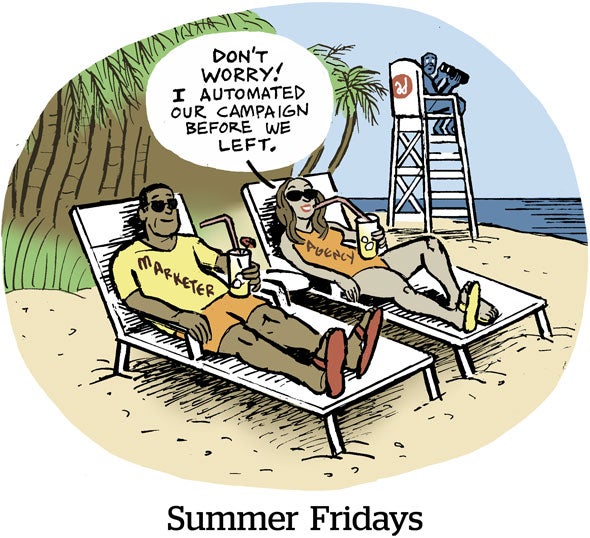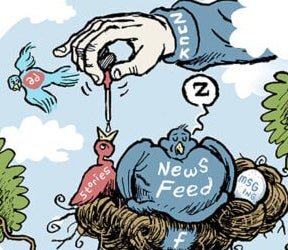Pre-Cannes Popcorn
Mark Read is exiting WPP at the end of the year, following a string of major client departures, The Wall Street Journal reports.
Elsewhere, Ad Age reports that Read has been fueling an agency rivalry between WPP and Publicis by directly soliciting Publicis clients with info and concerns about the quality of media through the Publicis-owned Epsilon SSP.
AdExchanger previously reported on Publicis’ software and data acquisitions, which include some crown jewels for its retail media practice (CitrusAd, Profitero, Epsilon and Conversant). These new businesses helped Publicis win blue-chip accounts, but they present a vulnerability in that they often work with other agencies. Those agencies can push budgets elsewhere or use their visibility as advertisers to smear Publicis.
Adding to the drama, Read is also reportedly informing Publicis clients of an unpublished Adalytics report that documents Epsilon campaigns, though isn’t targeted at Epsilon.
Publicis responded to Ad Age that WPP’s own report essentially jury-rigged campaigns using Epsilon and CitrusAd to purchase unviewable or brand-unsuitable ads. And only spent $200.
If WPP could show the same level of supply issues with a $200,000 Epsilon campaign, it’d likely be worth the ROI.
Deep Mined
Demis Hassabis is one of the most important people who pretty much nobody knows about. The CEO of DeepMind, Google’s AI unit, also won a Nobel Prize in chemistry.
In a wide-ranging interview with WIRED (Hassabis is asked whether he ever took LSD, which he says he did not), there’s a persistent question: Why should Google Search still exist if Google’s generative AI-based search systems are superior and only getting more so?
Similarly, if Google’s boasts of its own business AI agent assistants are true, it sure sounds like the end of that job for human assistants.
HASSABIS: “I don’t know if you have an assistant. I have a really cool one who has worked with me for 10 years. I don’t go to her for all my informational needs. I just use search for that, right?”
WIRED: “Your assistant hasn’t absorbed all of human knowledge. Gemini aspires to that, so why use search?”
HASSABIS: “All I can tell you is that today, and for the next two or three years, both those modes are going to be growing and necessary. We plan to dominate both.”
Strengthen Your Core
Google’s major SEO swings in the past couple of years have changed the game (which is to say, there is no more game) for product review publishers that earn (earned) a living by driving direct sales on, say, new computers, cameras or home air purifiers.
But there are also online lifestyle publishers that pretty much built their businesses around Google Search. Not just that they relied on search referral traffic or had well-honed SEO strategies. But because they published evergreen content that performed well on search, as Digiday reports.
Some content does still perform well. One food publisher exec says it refocused on recipes, where it’s more authoritative, and dropped coverage of adjacent topics like kitchen design (which, to be frank, were probably more like SEO cash grabs at affiliate revenue, not something the site’s readers actually wanted).
That has helped double its Google Search referrals since last year. Though the publisher is still below its former numbers.
“This almost sounds superstitious,” cautions the same publisher, “but when Google comes around for their big look a couple times a year [meaning, when Google makes its two or three core search updates], you have your Sunday best on.”
But Wait! There’s More
Warner Bros. Discovery is redividing its assets into two publicly traded companies, with one company focused on streaming TV. [Variety]
Equativ and Sharethrough will now both operate under the Equativ brand. [release]
Key changes from Apple’s WWDC 2025. [Bloomberg]
YouTube quietly made changes to its moderation policies to allow videos that would have previously broken platform rules. [NYT]
Anthropic has already pulled the plug on its AI-authored “Claude Explains” blog. [TechCrunch]
OpenAI is fighting a court order imposed as part of The New York Times’ copyright lawsuit that would require OpenAI to preserve deleted chatbot logs and sensitive B2B chats logged through its API. [Ars Technica]
Game 1 of the College World Series for women’s softball nearly outdrew Game 1 of the NHL’s Stanley Cup Finals in head-to-head TV ratings. [Awful Announcing]
You’re Hired
Reddit hires Adam Collins as its first chief communications officer. [release]
















